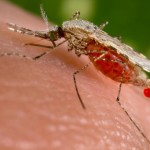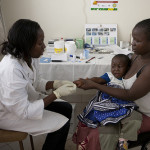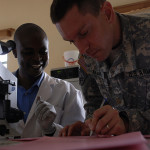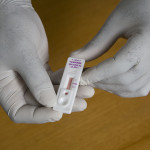10 Best Ways to Prevent Malaria
Malaria, prevalent in the tropical and subtropical regions, is a serious disease that, if contracted, can lead to death in serious conditions. It is transmitted and contracted through the bite of an infected mosquito. The commonly occurring symptoms include headaches, intermittent rise in body temperature, chills, vomiting and dizziness. These start making their appearance within about 10-15 days of being bitten.

While travelling abroad, especially to African and Asian countries, it is always advisable to beware of the risks and prevention tips on this infectious disease. There is a long list of medication available in order to immunize you from contracting malaria, but these carry a number of side effects and the medication itself has not been proven to be 100% effective. It is therefore advisable to keep other things in mind to prevent yourself from malarial contraction.
The ten best ways to do so are discussed below :-
- Be aware of how much risk you faceDifferent countries and destinations have different risk levels when it comes to the spread of Malaria. Risks are especially high in south, south-east and east Asia. It is important to know how risky your destination is so that you can take the necessary prevention measures accordingly. Some factors to be taken under consideration based on the risk level include: length of stay, time and season of the year during which you plan to travel, accommodation and area of stay (rural or urban) and the activities that you wish to perform during your stay. Even within the same destination, the risk levels under these factors can vary drastically. For example, while a tropical destination could be less risky in winter, the same place could carry a high risk of malarial contraction in the summer and monsoon seasons as this is the time when mosquitoes breed and are in abundance.A template for risk assessment is included in the HPA (Health and Protection Agency) document, namely, “Guidelines for Malaria Prevention in Travelers from the United Kingdom”.
- Choose accommodation that is well-screened during the nightIt is advisable to avoid sleeping out in the open at night, especially in areas that have any still-water bodies or garbage dumps in the vicinity. Look for accommodation that provides mosquito nets or at least screens covering the doors and windows.
- Make use of mosquito repellant creamsExposed hands and legs should be smeared with creams containing chemicals such as DEET (diethyltoluamide) and Picaridin. There has been no evidence of these mosquito repellents being toxic, even in pregnant women and children, and hence can be safely used.
- Use insecticide spraysInsecticide sprays such as Permethrine can be sprayed on clothing to repel mosquitoes effectively. Electrical pyrethroid-vaporisers can also be used in the evenings to keep mosquitoes at bay.
- Use insecticide-impregnated netsCover your bed with nets that are impregnated with insecticides such as Pyrethroid. Make sure that the nets are impregnated once every six months.
- Wear clothes that cover your skinWearing trousers and long sleeves in the evenings is a good idea for reduced exposure of the skin, thereby reducing the chance of mosquito bites.
- Use of ChemoprophylaxisAdministration of the drug chemoprophylaxis has proven to be effective to some extent in the prevention of malaria. It is advised that administration should be started 1-2 weeks before traveling and should be continued till 4 weeks after returning. However, medication is recommended only in high-risk areas as these can have some harmful side-effects.
- Carry stand-by medicationIf you plan to travel to regions with intermediate malaria risk, it is advisable to carry a stand-by treatment course. On experiencing any type of flu-like symptoms, medication should be started. It is important, however, that you receive some careful counseling on how to identify the symptoms correctly and how to administer the drug safely. Once symptoms start occurring, administration of drugs should be started within the next eight hours and other measures for prevention should be continued with full rigor.
- Strictly follow your prescriptionIf you have been advised medication by your doctor, make sure you take it regularly, without fail. Also, do not stop the treatment course too soon. Even after you have left the malaria-infected areas, it is advisable to continue taking the anti-malaria drugs for a period of four weeks.
- Be cautious and tread on the safer sideShould you experience any type of flu-like symptoms, even if they occur after 4-5 months of your return, it is always safe to consult a doctor. While it is true that in most cases, the infection symptoms manifest themselves within a week of two of the contraction, there are also cases when the disease actually breaks out after a much longer period (up to 6 months). Despite having taken all the measures correctly and following every precaution, there is always still a risk of being infected with malaria.


Wikimedia 
By Novartis AG 
By Novartis AG 
By US Army Africa 
TANZANIA / BAGAMOYO / 13 JUNE 2007 Malaria rapid test being performed in the outpatient clinic at the Bagamoyo District Hospital. Photograph by PRASHANT PANJIAR
By Gates Foundation
Newsletter
Get our Tips and Tricks to your Inbox



